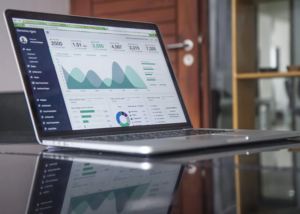The iOS 14.5 update will change the way advertisers interact with Internet users. Everyone is trying to prepare for the changes as best they can in order to adapt quickly. According to Forbes, this update will be especially appreciated by those who are concerned about security and privacy.
The update allows users to control what data advertisers can view. This is a big step forward in terms of transparency and privacy. Is Apple getting the marketing industry into trouble?
How will this be implemented?
 Apple’s anti-tracking will allow the user to choose whether to allow tracking of third-party applications such as Google or Facebook. Of course, if they accept cookies from these applications, it will not make any difference; advertisers will still be able to track the entire customer journey. On the other hand, if the Internet user refuses to allow the tracking of his data, this will pose multiple problems.
Apple’s anti-tracking will allow the user to choose whether to allow tracking of third-party applications such as Google or Facebook. Of course, if they accept cookies from these applications, it will not make any difference; advertisers will still be able to track the entire customer journey. On the other hand, if the Internet user refuses to allow the tracking of his data, this will pose multiple problems.
For Facebook, for example implementation, campaign conversion statistics and reports from mobile phones will no longer be collected live on the platform. From now on, this information will be collected in Apple’s SKAdNetwork API server, which will redistribute it to third-party applications. This will result in the limitation or restriction of certain conversion events currently in use. This will result in restrictions on certain conversions currently being used, for example only a limited number of conversions allowed to be active in the account.
Limitation of customer data and new follow-up
In order to limit the impact of this implementation; Facebook has worked on the implementation of a series of approved events meeting Apple’s expectations of tracking transparency. With these changes, Facebook wants to respect the privacy of Internet users while giving the advertiser visibility into the results. This is to maintain the long-term effectiveness of campaigns.
Google has prepared itself by offering two modifications:
- Firstly, by implementing the Google Ads tag. If this tag is installed directly on the client’s site, Google will continue to collect data live.
- Secondly, Google has created a consent mode (currently in beta version). This new mode will make projections for profiles that have not shared their data, based on the profiles that Google has information about. Thus, part of the conversions will be dispatched by means of acquisition and by campaign based on projections. For example, if 40% of users do not accept cookies, Google will collect information about the other 60% (e.g. conversions by channel, campaign…) and will make predictions for the other 40% who did not accept cookies.
Data monitoring, a hot topic
This iOS update follows the same idea as the General Data Protection Regulation – GDPR – by allowing individuals to regain control over their personal data. By refusing cookies, consumers will not be able to receive targeted advertising based on their behaviour on the site they have visited. The new iOS version will therefore offer the same choice. It is up to us as an agency together with advertisers to figure out how to make the Internet user want to receive non-generic content.
Let us talk about the technicalities: what kind of changes are we about to see on Facebook
Of course, at Universem, our teams of Analytics and Digital Marketing experts have prepared themselves to help you welcome these transformations. Here are a few tips to put into practice:
- Tools for tracking conversions:

Until now there was no limit for the number of events you wanted to track online. However, this will now be limited to 8 per website (domain). To be clear, these are both standard pixel events and custom events (specific conversions). Of these eight conversion tracking events, only the main ones will receive information from the API server. If a user completes multiple events, such as the “add to cart” or “buy” event, only the main pixel is counted.
- Targeting and attribution tracking:
As soon as the new update comes into force, the allocation windows of all campaigns – active or new – will be narrowed. Until now, we could access click tracking information for 28 days or 7 days for page views. This will no longer be the case.
- Analysis and reporting of campaigns
Data will no longer be collected in real time. It will wait until Apple’s SKAdNetwork server API transmits the essential information to Facebook and other third-party applications. As we no longer have direct control over this data, a delay of 48 to 72 hours could therefore be observed in the Facebook platform.
A promising challenge for advertisers
To a lesser extent for Google than for Facebook, major changes will take place. These will prove to be a challenge for advertisers in the weeks and months to come. But the Facebook application is and will remain one of the most powerful media for targeting Internet users during the awareness and consideration phases of the customer journey. The trends that will emerge from the results will always allow us to draw precise conclusions, as we can do now. With proper preparation (e.g., a checklist of some simple actions you can implement for both Facebook and Google), you can limit the impact of these changes.
You want to know more about this subject?
Learn all the ins and outs of this new implementation? Do not hesitate to contact our team of experts directly. We are more than happy and ready to help you!

